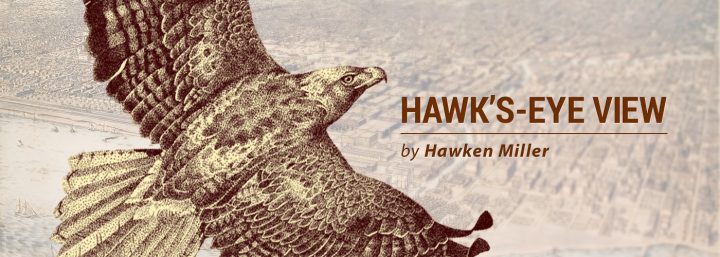Developing My Talents Has Helped Me to Thrive
Written by |

Life with Duchenne muscular dystrophy is far from predictable. We can’t foresee how our bodies will change.
When I turned 18 (I’m 23 now), I didn’t know that five years later, I would need help showering and getting off the toilet or up from the floor.
Like everyone else, those with Duchenne can’t predict where their God-given talents will take them. At least Duchenne has prepared us for every millennial’s fear: Will I have a job? What we can and should do is learn to develop our unique talents and present them to society.
I didn’t know if I wanted to be a journalist until the end of my freshman year at the University of Southern California (USC). But I had started honing my writing talents in eighth grade.
At 13, I wrote a class essay called, “This I Believe,” based on a reading assignment. It may seem like a small achievement, but I credit that piece of writing as one of the first things that propelled me toward a career in journalism. You can read more about it in this column.
I kept on writing. I took computer science, physics, and calculus in high school, but I realized the classes I enjoyed most were history and English — both of which are writing-intensive.
At the time, I was focused on getting good grades. But as I reflect on my high school years, the seed I had planted in eighth grade began to bloom as I inadvertently developed my writing talent.
After my freshman and sophomore years, I decided to join the school newspaper. Our publications adviser was hard on us, but in a good way. I quickly tightened my writing and developed a journalistic sense.
Writing, like any talent, requires continuous practice, learning, and improvement. However, we are all born with gifts and attributes that don’t need constant attention. Mine is curiosity.
Curiosity is vital to journalism. We ask questions, follow up on leads, and behave as impartial observers. Pair that with my commitment to writing, and it’s unsurprising that I landed on journalism as a career.
Working for USC’s school newspaper, the Daily Trojan, anchored my dream of becoming a journalist. I got to interview people like Arianna Huffington, David Kaye, the United Nations special rapporteur on the promotion and protection of the right to freedom of opinion and expression, and Leslie Saxon, the executive director for the USC Center for Body Computing. Each successive campus job and off-campus internship added to my love of journalism.
I tell my journalism story because it adds validity to the saying, “The world is your oyster.” Now is the time to discover your gifts and use them. Find out where you thrive and where you don’t.
None of us want to sit back and let this disease control our lives. So let’s take charge of one part of our future and use our talents to thrive.
***
Note: Muscular Dystrophy News is strictly a news and information website about the disease. It does not provide medical advice, diagnosis, or treatment. This content is not intended to be a substitute for professional medical advice, diagnosis, or treatment. Always seek the advice of your physician or another qualified health provider with any questions you may have regarding a medical condition. Never disregard professional medical advice or delay in seeking it because of something you have read on this website. The opinions expressed in this column are not those of Muscular Dystrophy News or its parent company, Bionews Services, and are intended to spark discussion about issues pertaining to muscular dystrophy.





Leave a comment
Fill in the required fields to post. Your email address will not be published.